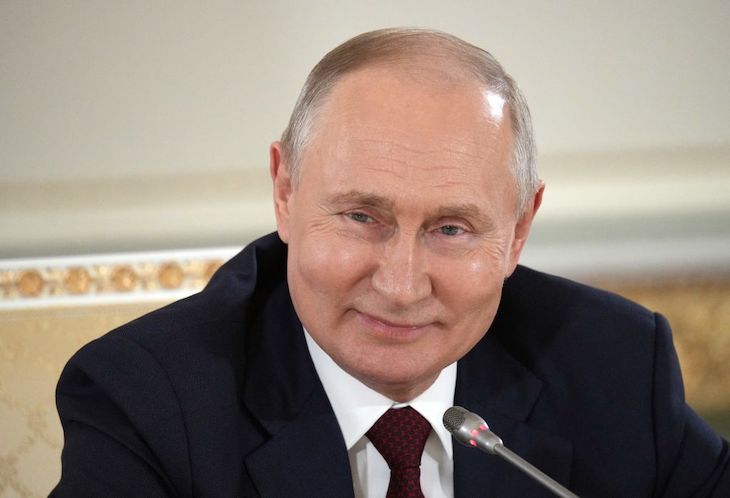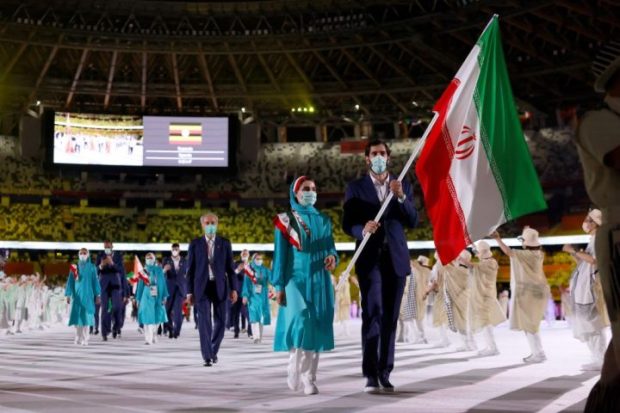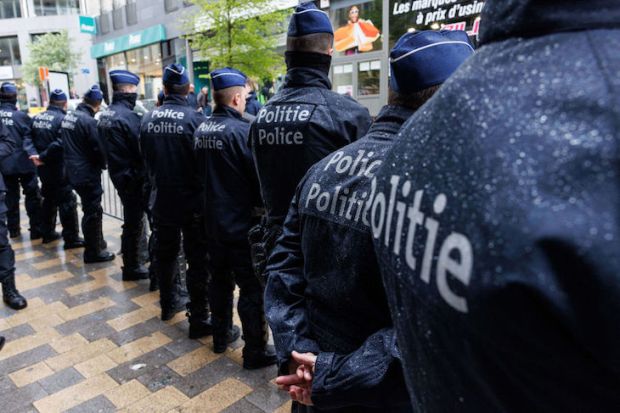In the early hours of Saturday morning, police in Paris shot dead a Sudanese man who had threatened them with a meat cleaver. The motive for his actions has yet to be revealed but the incident happened a day after Italy’s prime minister Giorgia Meloni warned her government that Europe faces a new migrant crisis because of the brutal war in Sudan that has displaced millions of people. Among the 157,00 migrants who arrived in Italy in 2023, 6,000 came from Sudan but Meloni believes that number will increase significantly this year.
The repercussions of last summer’s coup d’etat in Niger are also starting to be felt in Europe. One consequence of that regime change, in which the Europhile president Mohamed Bazoum was toppled by the military, was the decriminalisation in December of people trafficking. This was a booming trade a decade ago. It was estimated that three-quarters of the 181,459 migrants who crossed the Mediterranean to Europe in 2016 passed through Niger. The traffickers based themselves in the central city of Agadez, and at the height of the 2015/16 migrant crisis more than half of the city’s 140,000 residents were said to be involved in the smuggling trade in some shape or form.
These are the foolish remarks of Vladimir Putin’s useful idiots
Bazoum put an end to that by signing a treaty with the EU, but he is now gone and so has any will on the part of Niger to stem the flow of migrants north.
So far this year, 4,022 migrants have landed in Italy, a decrease of more than 2,000 in the same period in 2023. Most come from Syrian, Tunisia or Egypt with only a small percentage coming from Sudan.
There’s a reason for this drop. The people traffickers have moved their main smuggling route west, into Spanish territory, where the Socialist prime minister Pedro Sánchez is more relaxed about mass immigration than his Italian counterpart. In the first six weeks of 2024, nearly 12,000 migrants arrived in the Canary Islands from West Africa, a seven-fold increase on 2023, when 1,602 made the crossing. Most of the small boats bound for the islands depart from Mauritania, and so earlier this month the EU agreed to pay their government €210 million (£180 million) ‘to help it to curb irregular migration to Europe’. It is a similar deal to the one it signed with the Tunisian government last year – and the EU is also reportedly in talks with the Egyptian government.
The European right are sceptical that these deals are anything other than window dressing. Brussels will certainly be embarrassed by the announcement at the weekend that the man they employed for seven years to police Europe’s borders will represent Marine Le Pen’s National Rally party in June’s European elections. Fabrice Leggeri, who left Frontex, Europe’s border agency, in 2022, said Le Pen’s party is ‘determined to combat the migratory submersion, which the European Commission and the Eurocrats do not consider a problem, but rather a project: I can testify to this’.
Europe’s left-wing parties and human rights organisations make no secret of their opposition to pacts that might restrict freedom of movement. The European Council on Refugees and Exiles condemned the EU’s deal with Tunisia as ‘creating more barriers’ between Europe and Africa and infringing the ‘migrants’ dignity’.
These are the foolish remarks of Vladimir Putin’s useful idiots. Russia’s growing influence in Africa has been well chronicled over the years, but more recently it has become evident that Russia is creating chaos in the continent as part of a calculated strategy to destabilise Europe.
Putin’s malign interference stretches from Niger and Mali in the west to Sudan, Somalia and in the east, and to Zimbabwe in the south. Last July, Zimbabwe’s president Emmerson Mnangagwa met Putin in Saint Petersburg and told him that his country ‘is in solidarity with the Russian Federation in your country’s special military operation in Ukraine’.
In an in-depth report into Russia’s expanding presence in Africa in January 2022, the French newspaper Le Monde pondered whether it signified ‘the beginning of a strategic shift that would see a new “Russafrique” supporting “Chinafrique” in an anti-Western conspiracy’.
‘We’re going to invade you,’ he boasted
The answer is undoubtedly ‘Yes’. While Nato is focused on the fighting in Ukraine, Russia has opened a second front against the West in Africa; to put it crudely, it involves migrants rather than Russian troops. Sudan is a case in point. Russia covets the country’s gold mines (Sudan is now Africa’s third largest producer of gold) and in return for the mineral it offers humanitarian aid, scholarships and trade deals. It has also, according to a report last year by the Human Rights Foundation, ‘fuelled the [civil] war, a bloody and destructive power struggle’ that began last April and has resulted in the displacement of ten million Sudanese and pushed 18 million into food insecurity. The war started with a coup, one of seven that have occurred in Africa since 2020: Niger, Burkina Faso (two), Guinea and Mali (two).
Last year, 18,000 Guineans arrived in Italy in search of peace and security; many then headed north towards France. Among them was a young man called Aboubacar, who was interviewed by a French TV crew at the border. ‘We’re going to invade you,’ he boasted, referring to the thousands of his compatriots waiting to cross the Mediterranean. Asked why he wanted to settle in France, Aboubacar replied that ‘it was France that colonised Guinea’.
Similar sentiments were made regularly on social media by a 32-year-old Malian migrant. He expressed his ‘hate’ for France and its people because they enslaved his grandparents. He also raged against French leader Emmanuel Macron, blaming him for ‘pushing Russia’ to invade Ukraine, and he declared that ‘Europe will not have gas from the Russians’.
Why would he rant like that, unless, as the French government suspects, he was the victim of ‘foreign propaganda’? The Malian is now in police custody, accused of randomly stabbing three people at a Paris railway station at the start of this month.
Since Macron came to power, France’s influence in West Africa has evaporated. It is now Russia to whom Mali, Burkina Faso and Niger look for support and guidance. During last year’s coup in Niger, mobs waving Russian flags attacked the French embassy. Across the continent, Africans are being encouraged to hate Europe, to blame Europe and, in some cases, to come to Europe. The conflict in Ukraine might be locked in stalemate but, on his second front, Putin appears to be winning the hearts and minds of Africans.
Got something to add? Join the discussion and comment below.
Get 10 issues for just $10
Subscribe to The Spectator Australia today for the next 10 magazine issues, plus full online access, for just $10.




















Comments
Don't miss out
Join the conversation with other Spectator Australia readers. Subscribe to leave a comment.
SUBSCRIBEAlready a subscriber? Log in